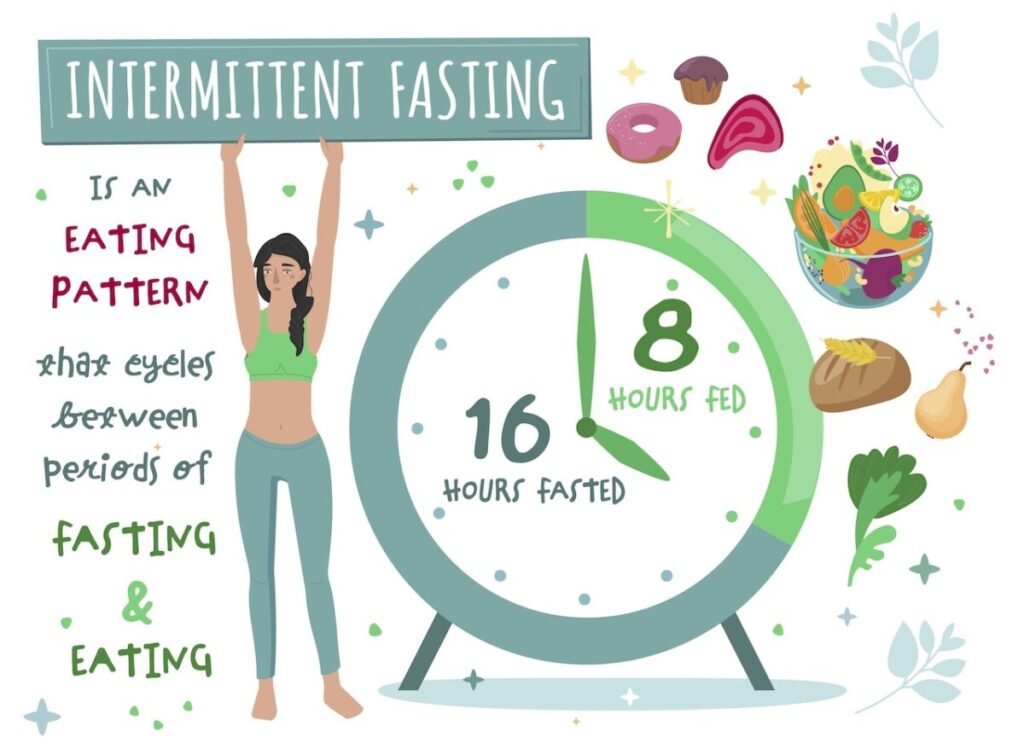
Intermittent fasting benefits. Personal diet plan concept. Help your body burn fat. Specific time eating. Worlds most popular health trend. Editable vector illustration isolated on a blue background
Intermittent fasting (IF) has gained popularity as a weight loss strategy, but how does it work, and is it effective? In this article, we’ll explore the science behind intermittent fasting and weight loss, including its benefits, methods, and potential drawbacks.
What is Intermittent Fasting?
- Intermittent fasting involves cycling between periods of eating and fasting. Common methods include the 16/8 method, 5:2 diet, and alternate-day fasting.
How Intermittent Fasting Promotes Weight Loss
- Calorie Restriction: Fasting reduces overall calorie intake, leading to weight loss.
- Hormonal Changes: Fasting increases norepinephrine levels, which boosts metabolism and fat burning.
- Insulin Sensitivity: Fasting improves insulin sensitivity, helping the body use stored fat for energy.
Benefits of Intermittent Fasting
- Weight Loss: Studies show that IF can lead to significant weight loss and fat reduction.
- Improved Metabolic Health: IF can lower blood sugar levels, reduce inflammation, and improve heart health.
- Enhanced Brain Function: Fasting may boost brain function and protect against neurodegenerative diseases.
Potential Drawbacks
- Hunger and Cravings: Fasting can lead to increased hunger and cravings, making it difficult to stick to.
- Nutrient Deficiency: Prolonged fasting may result in nutrient deficiencies if not managed properly.
- Not Suitable for Everyone: IF may not be appropriate for individuals with certain medical conditions or eating disorders.

Final Thoughts
Intermittent fasting can be an effective weight loss strategy for some people, but it’s not a one-size-fits-all solution. Consult a healthcare professional before starting IF, and consider your lifestyle and health goals. With the right approach, intermittent fasting can help you achieve your weight loss and health objectives.






